By Brittany Hodak |
For years, people told me, “You’ve got to write a book to help your speaking career,” or “I loved you on stage, but you need to write a book!” I knew I should write a book, but I was unsure how to go about the process. I didn’t want a book; I wanted an amazing book.
It seems that when you’re preparing to write or launch your book, there is no shortage of people waiting in line to take your money! In fact, the market for selling stuff to authors might be larger than the market of people who buy books.
As an aspiring first-time author, I often found myself confused and overwhelmed when it came to finishing and launching my book — even though I have many friends who’ve walked this path before. It was frustrating and time-consuming to navigate.
Here are three lessons I learned writing, releasing, and promoting my book, Creating Superfans, that all speaker-authors may benefit from, whether they’re launching their first or fifteenth book.
Figure Out How Big You Want to Play
Self-publishing, hybrid publishing, traditional publishing — there are many ways to get a book to market these days. It’s empowering to decide what universe you want to play in, knowing that your choice is based on your unique needs and goals.
For my book, Creating Superfans, going hybrid was really a process of elimination. I knew I wanted to print my book in color, which would almost certainly not fly with a traditional publisher for a first-time, unproven author. I also knew that having physical retail distribution in airports, Barnes & Noble stores, and independent bookstores was important to me. That goal seemed impossible without a high-end hybrid publisher with traditional retail distribution, so my list of potential publishers quickly narrowed.
I have speaker friends who’ve launched their books independently for a few thousand dollars in a matter of weeks. I also have friends who’ve spent years writing and launching their books with traditional publishers on the backs of seven-figure advances. I knew I would be somewhere in the middle. There is no one right answer. It’s all about what’s right for the individual.
I’m a big believer in “starting with the end in mind,” so figuring out the distribution component made the universe of potential high-end hybrid publishers relatively small. From there, I interviewed the contenders and figured out my expectations for cost and time with each, both for the initial book run (it turns out printing 20,000 hardcover color books is very expensive!) and the marketing and PR I wanted to support it.
I suggest looking at your book as a separate business unit. Write a business plan for three years. How much will it cost, and how much revenue will it generate? What are the speaking opportunities that will come from your book? Consulting? Audiobook sales? Foreign rights deals? The more time, effort, and (often) money you can allocate on the front end, the more likely you will see significant ROI on the back end. Don’t consider your book a one-off project with a start and end date; treat it like a business unit you’ll be operating for years.
Start Talking About Your Book Wayyyy Before It Exists
As seasoned speaker-authors know, there are benefits to “talking” your book before writing it. Adapting keynote material into your book gives you time to “road test” your theories and ideas before committing them to paper and helps you refine your ideas. I’m glad it took me years to start writing my book — I was ready!
Similarly, you should start telling people about your book long before it exists. Tell people you’re writing a book and hope they’ll buy it when it comes out. Invite them into the process! Share potential subtitles, cover artwork, or chapter names on your social media pages, and invite your followers to weigh in. When people feel like they’ve been part of the process with you, they’re more likely to support you when the time comes to order (or pre-order!) the book. I launched my Amazon pre-order months before my book came out… and I’ll do it next time, too!
Pay Attention to Your Sales Numbers
Speaker-authors often tell me, “I have no idea how many copies of my books I sell.”
I can’t wrap my head around that. Do you know how many keynotes you’ve delivered this year? And roughly how many audience members you have spoken to? Then why wouldn’t you know how many books you’ve sold? It’s the same thing: serving an audience who is engaging with your message!
I get it: there’s a lot to track. I have to look at four different reports (from three different places) to track my hardcover retail sales, hardcover direct sales, audiobook sales, and e-book sales. And all of those come on different schedules. But when they arrive (one weekly, one monthly, one quarterly, and one every 60 days), the numbers go directly into a dashboard. It’s not just crucial to me tracking things like revenue and inventory levels — it’s also an important metric to help understand the overall health of my speaking business. If you aren’t tracking book sales, it’s much harder to track conversions to know how many readers turn into keynote clients.
I hope these tips help you on your speaker-author journey! For a much more comprehensive list of my learnings and a full recap of my launch — including exactly how much money I spent on PR and social media—check out the free launch recap on my website.

